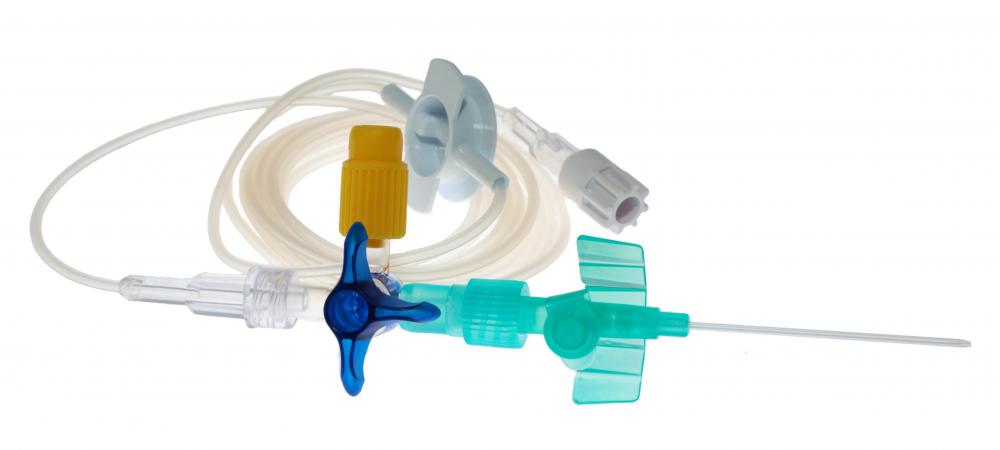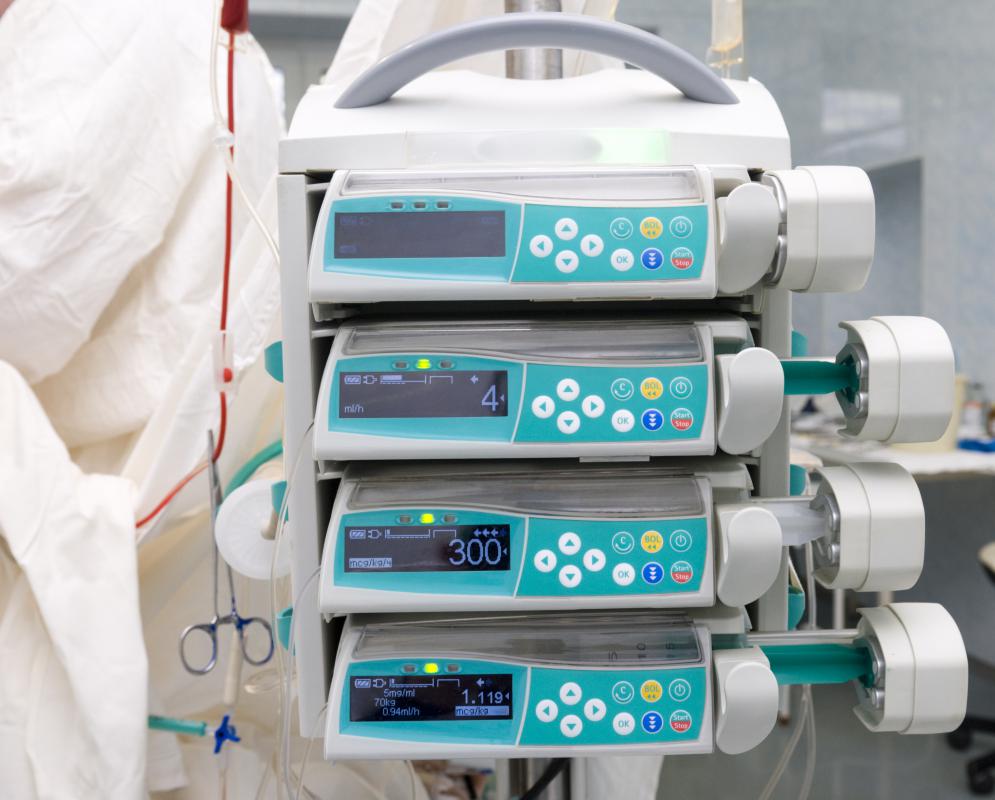At WiseGEEK, we're committed to delivering accurate, trustworthy information. Our expert-authored content is rigorously fact-checked and sourced from credible authorities. Discover how we uphold the highest standards in providing you with reliable knowledge.
What Is Partial Parenteral Nutrition?
Partial parenteral nutrition (PPN) is a supplemental form of nourishment delivered intravenously to patients who are sick or injured and cannot adequately feed themselves or use a feeding tube. This nutritional supplement is only used short-term until the patient can recover and feed normally. Glucose, amino acids, salts, lipids, and vitamins are combined in varying amounts in the PPN to meet the patient’s particular needs. Complications from using partial parenteral nutrition include electrolyte and fluid imbalance, high blood sugars, and infection. These complications are minimized by running blood tests, observing strict sterile protocols, and limiting the time spent on PPN.
PPN is an intravenous method of supplementing the nourishment of a person who is sick or injured but can still eat or is only temporarily unable to eat. The composition of the nutrition varies based on the needs of the patient, the patient’s illness or injury, and his age, but the basic components are glucose, amino acids, salts, lipids, and vitamins. Medications or additional nutritional components can also be added to the solution. When receiving this nutritional supplement, patients are closely monitored with blood tests to be sure that all of their nutritional needs are being met, and if not, the make-up of the partial parenteral nutrition is changed. Patients on PPN can eat when allowed by their doctors, but feeding should begin gradually with small amounts of simple, easily digested foods.
Delivery of the PPN is typically through a peripheral intravenous catheter, usually in the arm. The solution is fed out at a controlled rate using an infusion pump. It is typically administered only in the hospital.

Several complications are associated with the use of parenteral nutrition. PPN can lead to fluid and electrolyte imbalances and elevated blood sugars which can cause dehydration, shock, and heart and kidney failure. To prevent this, patients are closely monitored with blood tests and weight charts, and careful records are also kept of the composition and amount of solution given. Infection is another risk associated with PPN. To reduce this risk sterile conditions are strictly observed, the site of the infusion is carefully cleaned and covered, patients are monitored for any signs of an infection, and the time spent on partial parenteral nutrition is limited as much as possible to off-set the risks.
AS FEATURED ON:
AS FEATURED ON:















Discussion Comments
Ideally it's a short-term situation. However, I've heard of patients on it for 20+ years.
What is the longest amount of time a person should be on PPN?
Post your comments